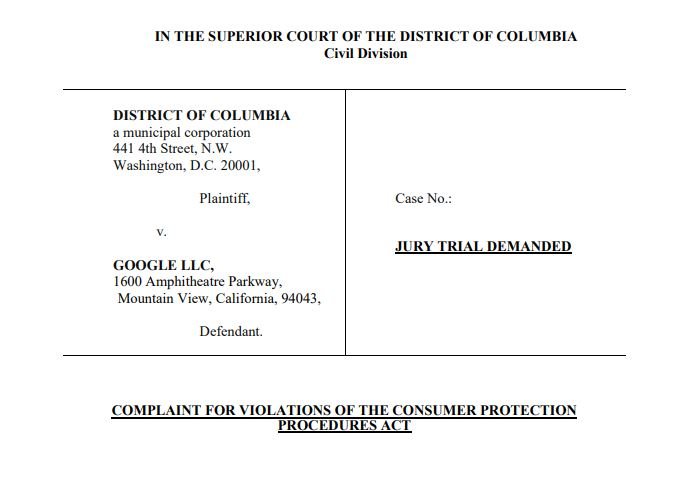After three years of research into Google security and privacy practices, a group of people filed four separate lawsuits arguing that the company misled users by tracking their information even when it claimed it didn’t. This group includes D.C.’s attorney general, Karl Racine, whose office has made the lawsuit official.
The plaintiffs say Google has made false claims to its consumers about users’ privacy since at least 2014, in a mix of false promises and manipulations, pressuring users to allow Google to access more sensitive information.
In this regard, Racine mentions: “Google falsely made consumers believe that changing their account settings would allow them to protect their privacy and control what personal data the company could access. Contrary to their claims, Google continues to systematically monitor customers and benefit from access to their personal data.”

An example of this misuse of sensitive information is location details, commonly used by the company to target potential buyers using Google Ads and location-based search results. By doing so, specific ads that are relevant to the user will appear on the platform and searches will filter the results based on a given location radius.
According to the plaintiffs, Google would have collected and stored location details of millions of users using Google services, WiFi data and agreements with advertisers, regardless of whether the users had modified the default settings of their Google accounts.
In response to the lawsuits, a Google spokesperson recently mentioned, “The attorneys general are filing a case based on inaccurate and outdated claims about our setup. For years, we’ve integrated privacy features into our products to provide robust controls for location data. We will vigorously defend ourselves and set the record straight.”
To learn more about information security risks, malware variants, vulnerabilities and information technologies, feel free to access the International Institute of Cyber Security (IICS) websites.
He is a cyber security and malware researcher. He studied Computer Science and started working as a cyber security analyst in 2006. He is actively working as an cyber security investigator. He also worked for different security companies. His everyday job includes researching about new cyber security incidents. Also he has deep level of knowledge in enterprise security implementation.
